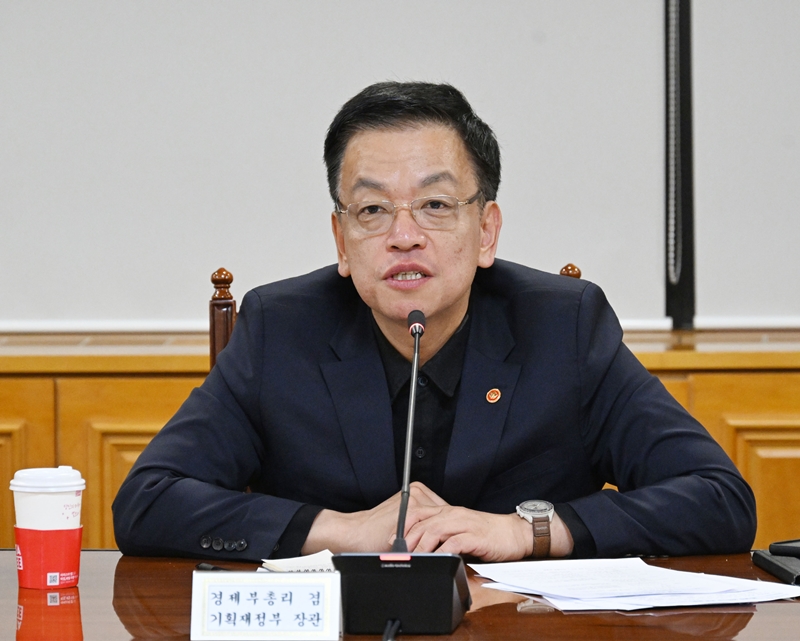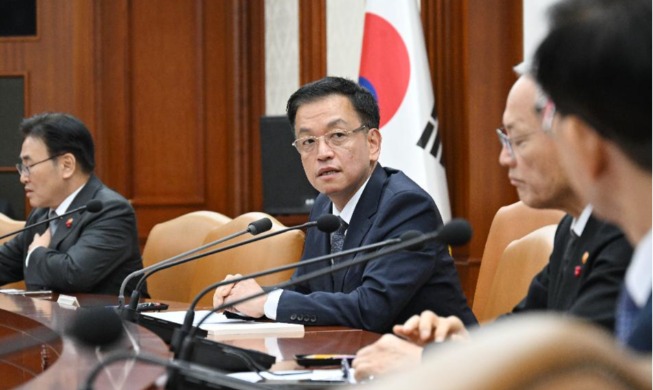
Deputy Prime Minister and Minister of Economy and Finance Choi Sang Mok on Dec. 5 told Bloomberg in an interview, "Fears that the nation will slide into a recession next year are excessive," referring to the country's martial law incident. He is shown on the morning the same day at an emergency meeting on macroeconomic and financial issues at the Korean Federation of Banks in Seoul's Jung-gu District. (Ministry of Economy and Finance)
By Lee Kyoung Mi
Minister of Economy and Finance Choi Sang Mok says the impact of martial law on the market has been very limited since it was quickly lifted based on the Constitution and laws.
In an interview on Dec. 5 with Bloomberg, he dismissed fears that the incident will have a lasting impact on the domestic economy and markets.
On fears over a recession, he said, "I think it is too excessive to say there is a recession next year," adding, "Korea's growth rate next year projected by the International Monetary Fund or the Bank of Korea is at or near the potential level."
The minister also downplayed the notion that global investors could avoid Korea due to political instability. "Because our various systems are working well, the impact on the economy has been very limited and well managed," he said. "Even in the past, we've seen that the impact of non-economic factors was not a major concern for foreign investors."
On the morning of Dec. 6, Minister Choi held another emergency meeting on macroeconomic and financial issues to review trends on the financial and foreign exchange markets and discuss responses.
Financial authorities pledged a fund worth KRW 10 trillion to stabilize the domestic stock market, another worth KRW 40 trillion to do the same for the bond market, and a program to buy corporate bonds and commercial papers.
km137426@korea.kr
Most popular
- President Yoon lifts martial law per parliament's request
- 'Martial law has limited economic impact, recession fears excessive'
- Seoul named world's best MICE city for 10th straight year
- Convenience store branches evolve into chic cultural venues
- Incheon airport eyes 100M passengers, top 3 megahub status


